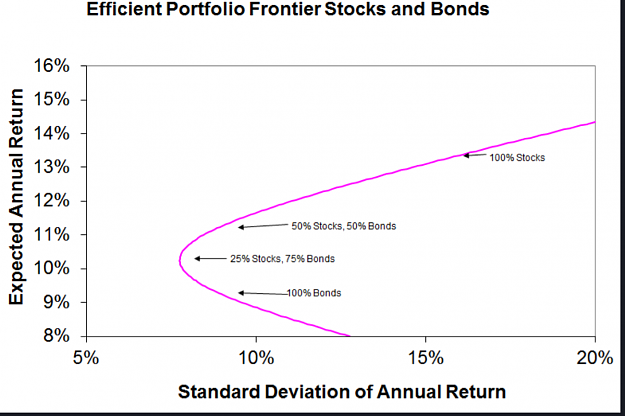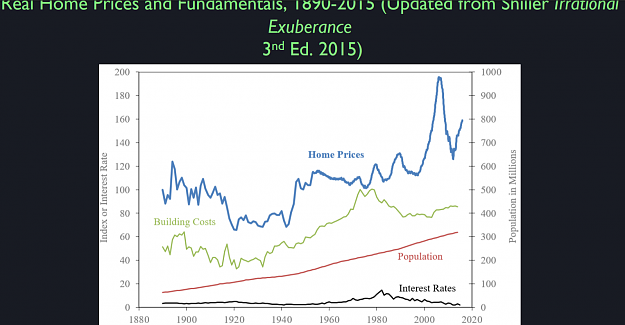Clemmo's Canon of Trading
1. Clemmo's First Lemma
- Simple patterns like candlesticks, MA crosses, double tops/bottoms exist in market data but anticipate nothing; they are 'fool's gold'
- The market is a pattern-erasing machine; by the time we see something it's no longer useful
- Smart people want to 'figure things out' and find order in chaos; they get stuck down rabbit holes
- Pragmatic traders just want chaos and a method of dealing with it; one method is enough
Supporting Evidence:
- Mark Tier: Learn from the Greats. Forecasting doesn't work and diversification is neutering.
- Robert Shiller: Finance is a technology. Being very clever and good at maths are not by themselves enough to avoid making basic trading errors like staying out of a long-running bull market. Another way to say the same thing: there's more to trading than fundamental analysis.
- David Aronson: Common technical analysis methods, and simple strategies based on TA don't work.
- Nicholas Nassim Taleb: Randomness is tricksy. People are pattern-detecting machines even where none exist. The vast majority of traders and money managers are self-delusional. The rare event is where real profit lies.
- Al Brooks: When you see everything, you focus on nothing. You can make a living selling trading books as long as they are confusing enough and you repeat yourself often.
- Brent Penfold: Serious traders focus on price not indicators. Pragmatists use Dow theory, breakout, (inter)market, spread, volume and statistical analysis,
2. Clemmo's Second Lemma
- Momentum is real
- Markets have inertia; this cannot be obfuscated, distorted or manipulated beyond observation
- Trending markets tend to continue trending
- The trend is your (fair-weather) friend; use it but don't depend on it
- Avoid biases and trade what you see
Supporting Evidence:
- Jesse Lauriston Livermore: Wait for the market to react. Set some money aside. Buy rising instruments, and sell falling ones. A stock is never too expensive to rise or too cheap to fall. Complex charts and systems are suspect. Keep your own records and data.
- Nekritin&Walters: Patterns generally fail but the ones that don't fail ('Big Shadows') make use of 'big' candles, in other words momentum is the real signal.
- Omer&Lizotte: if price can move n pips it's more likely (than not) to move another n pips where n is limited to a reasonable daily range; that's because trends exist
- Laurent Bernut: rising floors and falling ceilings (not examined in this thread yet)
- Neiderhoffer & Osborne: A sequence of two moves in the same direction is more likely to be followed by a move in the same direction than by a reversal
- Jeff Cooper: A stock in motion tends to remain in motion.
3. Clemmo's Third Lemma
- Sensible Money Management is Critical
- There is much random and uncontrollable behaviour in market prices
- As a result we have to treat any system probabilistically and size positions logically
- Determine odds, payoffs and expectancy
- Use a money management system that dovetails with our trading system
- Define realistic expectations about the rate of returns, and monitor that rate
Supporting Evidence:
- Jesse Lauriston Livermore: The Great Plunger died broke or close to it. You can be a great trader and still lose the war if you don't manage your battles.
- Brent Penfold: Money Management is the key to survival. It is one of the three pillars of success along with methodology and psychology.
- Kirill Emerenko: Poor Money Management can take a positive expectancy system and ruin it. Kelly's formula is theoretically optimal.
4. Clemmo's Fourth Lemma
- Price is Cyclical
- Unfortunately this cyclicality seems to be difficult to forecast, if at all
- Using shifted/phased averages might offer some benefit in forecasting trends
- Stationary (ranging) action is possibly easier to fine-tune than wild volatility
Supporting Evidence:
- JM Hurst: The Profit Magic of Stock Transaction Timing - the 'FLD'. (not covered in the book club yet)
- Manesh Patel - the Ichimoku Kinko Hyo indicator seems to be able to avoid ranges better than any Moving Average
- John Ehlers - 'spectral dilation' causes wacky interpretations of common indicators
5. Clemmo's Fifth Lemma
- Machines are better at trading
- Although our human egos don't want to admit it, computers/robots are better at many tasks, especially repetitive ones that demand speed, and consistency
- Trading is such a task. Many of the lessons learned from other books stress the importance of acting less like a human, and more like a machine
- Rather than give up your humanity, give up your ego. Let the machine do the work, and even some of the thinking.
- Don't let the machine do ALL the thinking.
Supporting Evidence:
- Every book by Jack Schwager that showcases calm, cool, measured reactions based on a fixed framework
- Behavioural Investing by James Montier; research shows software is better at multidimensional analysis and following frameworks
6. Clemmo's Sixth Lemma
- Mean Reversion Rules the Short-Term
- 'Price Action' is at least partly market noise, 'price shocks', combined with a longer-term fundamental trend
- On timeframes less than a day, the noise outweighs the signal
- Systems that seek to profit from short-term trades benefit from mean-reversion more than from trend-following
- Such systems are best for algorithmic trading, pairs trading or statistical arbitrage
Supporting Evidence:
- Alpha Trading by Perry Kaufman; mean-reversion of 'price shocks' benefit shorter trading horizons once volatility has been adjusted or filtered
- Brent Donnelly; when there is confusion about a market move it has further to run, so by inversion, when the market is in 'default mode' it (nearly) randomly walks within a range
- Edward Thorp; Two securities one which is overbought and one oversold, can be traded together to earn a market-neutral profit
7. Clemmo's Seventh Lemma
- The Markets are a Jungle Ruled by Predators and You Are the Prey
- Markets are like ecosystems both in complexity and in how they are powered by energy from producers (the public)
- The whole system could not exist without a constant input of new money flow
- Trading against this new flow is the basic cause of market noise and the reason that 'coppering the public's bets' is so effective
- It is not paranoia to assume that your stops, your entries, or your account balance is being hunted, directly or indirectly; you are in danger
- Predators are bullies. If you’re not bullying someone, you are prey. Learn how to bully.
Supporting Evidence:
- Victor Niederhoffer; the marketplace has an ecology with predators (banks and hedge funds), herbivores (fixed income), and prey (the public)
- Market Wizards, esp. Mark Weinstein; "I wait for the exact right moment to capture my prey".
- Michael Lewis, Liar’s Poker, “it’s better to have a good jungle guide than to be clever and isolated”.
- 6 years of personal experience; when you place a trade how often does it immediately go in your favour? How often does it immediately move against you?
The next big questions: What about regression analysis, and its tools like envelopes, channels and bands? What about investing? Is trading even worthwhile compared to investment profits?
Table of Contents
Reminiscences of a Stock Operator by Edwin Lefevre--------------------------------- A (absolutely essential)
The Market Wizards (series) by Jack Schwager --------------------------------------- A (indispensable classics, praised by industry giants)
The Universal Principles of Successful Trading by Brent Penfold --------------------- A- (money management explained if not settled)
The Education of a Speculator by Victor Niederhoffer -------------------------------- A- (beautifully written if somewhat expansive and perambulatory)
The Art of Currency Trading by Brent Donnelly --------------------------------------- A- (fundamental analysis with teeth)
Fooled by Randomness by Nassim Nicholas Taleb------------------------------------- A- (entertaining and thoughtful if pessimistic)
The New Trading for a Living by Dr. Alexander Elder --------------------------------- A- (some novel insights, lots of info and maybe even a useful system)
Studies in Tape Reading by Richard Wyckoff -------------------------------------------A- (seems like wisdom; and he basically invented early TA)
Tape Reading and Market Tactics by Humphrey Neil ---------------------------------- B+ (seems like Wyckoffian sort of wisdom, but emphasis on volume)
Trade My Way by Alan Hull ------------------------------------------------------------- B+ (a couple of simple yet detailed systems makes up for a couple of dud chapters)
Trading with Ichimoku by Manesh Patel ----------------------------------------------- B+ (despite all of its flaws this might actually reveal a useful TA tool)
New Concepts in Technical Trading Systems by Welles Wilder ------------------------B+ (a classic of tech. analysis that seems about as useful the rest of TA)
Cycle Analytics for Traders by John Ehlers ---------------------------------------------B+ (a daring attempt to measure the unmeasurable)
The Trading Game by Ryan Jones -------------------------------------------------------B (popular among traders, a bit of a classic, but is it really that important?)
Evidence-Based Technical Analysis by David Aronson--------------------------------- B (educational but tiresome and ends with a whimper)
Day & Swing Trading the Currency Market by Kathy Lien ---------------------------- B (a hefty data dump with somewhat less insight than data)
Behavioural Analysis by James Montier ------------------------------------------------B (a comprehensive overview of the subject with a couple of plausible strategies)
The Winning Investment Habits of Warren Buffett and George Soros by Mark Tier- B (good general advice)
Trader Vic Methods by Victor Sperandeo ---------------------------------------------- B (A solid way to identify trend changes; a boatload of psychology)
A Man for All Markets by Edward Thorp ----------------------------------------------- B (A not overly detailed or technical introduction to the first hedge funds)
Predicting Price Action by Owens & Lizotte-------------------------------------------- B- (short but sweet)
Hedgehogging by Barton Biggs--------------------------------------------------------- B- (entertaining like Market Wizards but less informative)
The City: London and Global Power of Finance by Tony Norfield --------------------- B- (an analysis of British finance from a Marxist perspective, not about trading)
Global Financial Markets Coursera Course by Robert J Shiller------------------------- B- (somewhat academic)
The Physics of Wall Street by James Weatherall --------------------------------------- B- (good intro to history of econ modelling but modern examples are weaker)
Pit Bull by Marty Schwartz -------------------------------------------------------------- B- (good general advice, entertaining read, maybe too much like some others)
Phantom of the Pits by Art Simpson ---------------------------------------------------- B- (more good general advice, examining 2 rules basically)
Alpha Trading by Perry Kaufman ------------------------------------------------------- C+ (educational but impractical for most traders owing to highly specific methods)
The Ultimate Handbook of Forex Trading Basics & Secrets by ForexHero------------ C+ (more basics than secrets but a quick read)
Hit and Run Trading by Jeff Cooper ---------------------------------------------------- C+ (some promising ideas but barely scratches the surface)
Naked Forex by Nekritin & Walters -------------------------------------------------- C+ (some good ideas marred by imprecision)
Liar’s Poker by Michael Lewis ---------------------------------------------------------- C (A few insights but somewhat plodding)
The Successful Trader's Guide to Money Management by Andreas Unger ----------- C (lots of knowledge, but most of the credit belongs to others)
High Probability Trading Strategies by Robert Miner ---------------------------------- C (makes promises it cannot keep)
Trading From Your Gut by Curtis Faith ------------------------------------------------- C (not neuroscience or even science, and not clearly useful)
The Black Book of Forex Trading by Paul Langer -------------------------------------- C (not terrible, but far from great, just another trading book)
Reading Price Charts Bar by Bar by Al Brooks----------------------------------------- D (more useful as a cautionary tale)
Making Money in Forex by Ryan O'Keefe ---------------------------------------------- D (one interesting idea does not a good trading book make)
Bird Watching in Lion Country by Dirk Du Toit----------------------------------------- D (some fresh ideas poorly detailed and almost unreadable)
Trading Against the Crowd by John Summa ------------------------------------------- D (a mad scientist experiments with options to forecast sentiment)
Technical Analysis for the Trading Professional by Constance Brown ----------------- F (deliberately misleading. the goal is to sell books & courses)
Time Compression Trading by Jason Alan Jankovsky ---------------------------------- F (maybe I should have stuck it out but it seems an unclothed emperor to me)
Trade Your Way to Financial Freedom by Van K. Tharp -------------------------------- (skipping it as the short summary here has everything you need to know IMO)
Swimming with Sharks by Joris Luyendijk ---------------------------------------------- (journalistic commentary, not trading advice)
Please vote in the poll or suggest new books to add to the reading stack!


